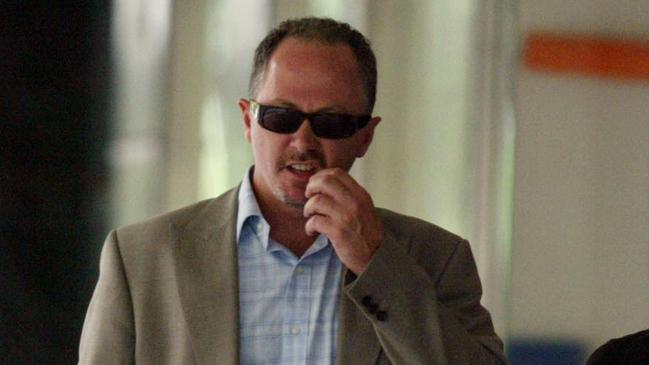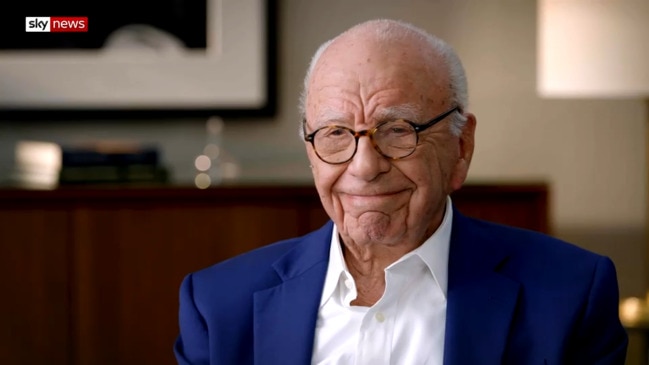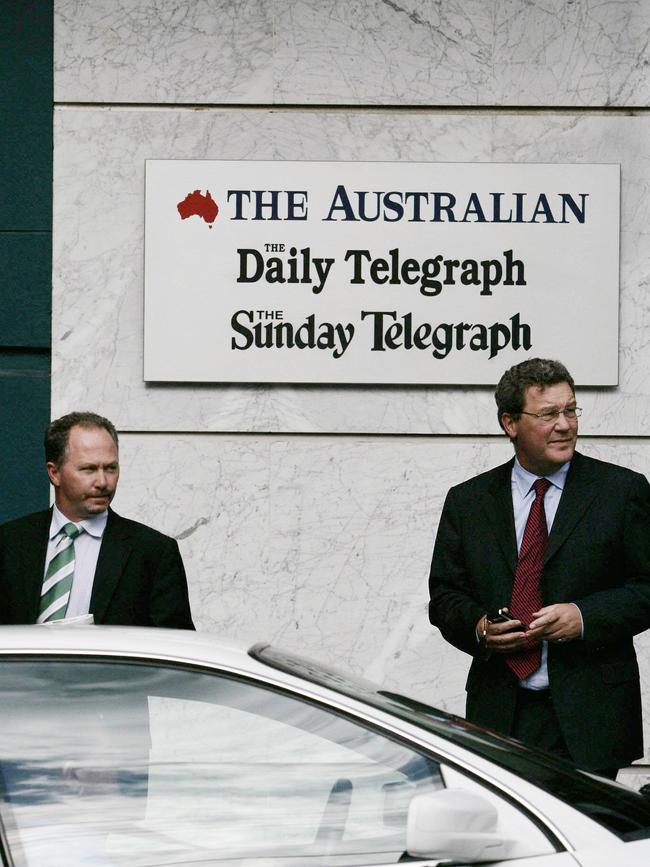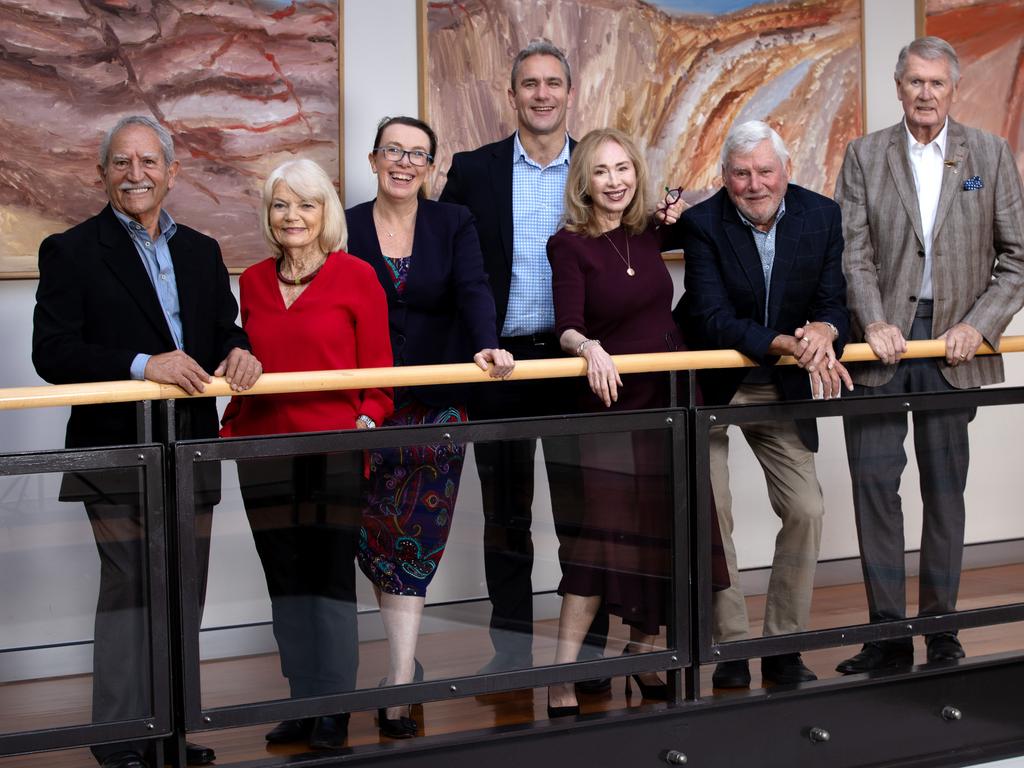The Australian’s founding mission still inspires, 60 years on
From being dubbed a ‘chief bully’ to helping formulate and express editorial positions, I have seen The Australian from many angles. Rupert Murdoch’s ambitious vision stands the test of time.

It is a complex, organic and focused operation, full of ambitions, stories, interests, experts and egos, all somehow coalescing around a sense of mission.
The Oz sees itself as the engine room of national news, commentary and aspiration, not just the chronicler of Australian prosperity and improvement but a prompter and facilitator.

It is impossible to imagine the national political debate without The Australian; it would lack substance and seldom be elevated from the brutal power lust of the major political parties. Without The Oz, some of our greatest controversies might have gone undiscovered and unreported, and our cultural and social debates too would be anaemic.
My first appearance in The Australian was not auspicious – I was papped. To my surprise, one morning in February 2006 I opened the paper to see an unflattering photo of myself, walking down a city street the previous day (I had not noticed a photographer), and it was accompanied by a similarly unflattering article about my role as media adviser to then foreign minister Alexander Downer.
Through journalist Caroline Overington (who dubbed me Downer’s “chief bully”) The Australian was leading the prosecution of the Australian Wheat Board scandal. It was a difficult issue for Downer and the Howard government and a few weeks later I accompanied Downer to a meeting with then editor-in-chief Chris Mitchell at News Corp headquarters to try to cauterise the issue – and we were papped again as we left the building, a picture published the following day.

Yet five years and a few political, media and corporate jobs later I joined The Oz, employed by Mitchell. From day one I attended the morning editorial conference where, after news and other coverage was thrashed out, we discussed, debated and framed the arguments to be run in the following day’s leaders, covering the full gamut of national and international policies and issues. I loved the intellectual challenge, writing and responsibility, even if I winced at seeing some of my best lines go to print without my byline.
As a child I was a news junkie before the term was coined. My parents encouraged us to follow television and radio news – we would watch the nightly news and This Day Tonight as a family – but papers were afforded special reverence.
In suburban Adelaide we would retrieve The Advertiser from the front lawn in the morning and my father would arrive home from work with a copy of the afternoon tabloid The News, the foundation stone of what was to become the News Corp empire. I would run down the driveway, hug my father and simultaneously tug The News from his hand.
When The Australian was first published, 60 years ago this Monday, I was less than two years old, so for all my reading life The Oz has been a presence. By the time I was a teenager in the 1970s its heft started to dawn on me and I turned to it for less provincial content and coverage of national and overseas news.
On my study wall now hangs a poster-size version of the paper’s front page on the day of my 21st birthday (one of series created for the 50th anniversary) and it carries only one story, the glorious news of Australia II’s America’s Cup victory. “Yes, we can do anything if we try!” is the headline that summarises both the optimism of that time and the ethos of the national broadsheet Rupert Murdoch audaciously launched almost 20 years earlier.
Around that time I ventured into journalism and The Weekend Australian, in particular, became a mainstay for unhurried nourishment, and names such as Paul Kelly, PP McGuinness and Phillip Adams loomed larger than life, as did Laura Tingle a little later. (Over time The Oz has supplied an ungrateful ABC with some of its most prominent talent!) To this day I have to pinch myself as I appear in the same pages as some of these titans. Even better, I get to chew the fat as a colleague with the likes of Kelly, Janet Albrechtsen, Greg Sheridan and many others, including, happily enough, Overington.
All serious journalists, politicians, political advisers and businesspeople across the nation read The Australian. They cannot afford not to – there is no other way to be across the news and issues that matter to the nation.
Criticism is expected and welcomed, but the loudest critics – mainly from the green left and especially those funded by the public broadcasters – must know The Oz is the benchmark for national coverage and proper ventilation of policy debates.
I suspect this reality is at the heart of their resentment.
Murdoch’s dream of a media organisation that not only binds the nation together but prods Australia to improve, a paper that is realistic about Australia’s flaws and ambitious for its future, is precisely the ethos that should drive a national broadcaster. Few people, least of all those who have steered The Oz, would claim it is always right or without fault, but no one could be in any doubt about its overarching mission.
Where else but in these pages can you find a genuine contest of ideas in this country? We saw that in last year’s debate about the referendum on an Indigenous voice to parliament.
As a longstanding and prominent advocate for the voice (drawn to it because of my association through this newspaper with Noel Pearson) I wrote about it often, and while abuse and praise came from near and far during that debate, the only substantive arguments against the voice came through The Australian’s pages, where Albrechtsen, Kelly, Sheridan and contributors such as senator Jacinta Nampijinpa Price took on the arguments with an intellectual integrity that was unrecognised or deliberately ignored in much of the broader debate.
Nampijinpa Price and I got together for the first time since the referendum during filming for the Sky News documentary The Australian: 60 Years of News and discussed how we respectfully thrashed out competing views in these pages, unencumbered by editorial dictums. For the documentary I also interviewed Kelly, who discussed how he parted ways with The Oz over the dismissal, only to return a decade later.
This robust disagreement, open debate and hard testing of weighty ideas is central in a vibrant democracy – and The Oz lives for it. Editors have stood by journalists countless times, like Hedley Thomas when reporting on Dr Mohamed Haneef, or Overington on AWB, even me in stoushes with the ABC, and cartoonist Bill Leak when he was disgracefully targeted by the Australian Human Rights Commission and section 18C of the Racial Discrimination Act.
The darkest day at The Oz was Friday, March 10, 2017, when Leak died after suffering a heart attack at his home on the NSW Central Coast. Somehow, through the pall, many of his dearest friends helped put together a worthy weekend newspaper that would honour Leak for a readership that rightly adored him.
My task was to write the editorial – we would devote the “full drop” to Bill – and I tried to encapsulate how we would miss his daily dose of sanity, while also chronicling how he courageously championed freedom of expression.
In doing so, I reflected on the paper, its mission and his role in fulfilling it. “A newspaper such as this – one that aims to stand for something – exists on the daily toil of hundreds of people and the engagement of many thousands of readers. But for ballast, steadfastness and adherence to true north, it will sometimes rely on a handful of people who, like human rudders, are vitally important to the whole venture.
“Leak was such a talent. The paper was not only better for his daily cartoons but for how his instincts and fortitude helped to shape and sharpen the contributions of hundreds of others.”
This is the secret of the paper, and the way it must survive. Murdoch’s initial genius and determination in founding The Oz became a mission that continues to inspire.
Of course there are commercial imperatives, and this venture has never been financially easy, but more than the ink, paper and presses, more even than the computers, programs and platforms, it is Murdoch’s idea of The Australian that must endure. Johannes Leak carries the cartoonist’s torch now, for his father and the paper, Lachlan Murdoch now chairs News Corp, Michelle Gunn is editor-in-chief, and there are young and seasoned journalists across the land and further afield.
With varied responsibilities, there is a uniting mission that is intergenerational – the entire point of the nation, and the paper, is to focus on interests that matter beyond a generation.
When I was first recruited to write leaders, Mitchell and then editor Paul Whittaker suggested I seek out the obvious guiding star for the paper’s navigation – Rupert Murdoch’s original editorial in that first national broadsheet edition.
It stands the test of time. “We shall encourage those feelings and movements in public and private life which elevate the individual and advance the nation’s welfare.”
So long as there is a federation that values unity, a population that wants shared values and a market of ideas, and a nation that seeks economic, social and environmental progress, there will be a need for a national media platform that eyes the same prize. Just imagine the stories, debates and achievements that will unfold across the next 60 years.








From being dubbed a political “chief bully” in The Australian’s news coverage to helping formulate and express the paper’s editorial positions, I have seen the national broadsheet from many angles. A longtime avid reader, I became a journalistic competitor at other papers and outlets, and then as a political operative I sparred with The Oz’s journalists, feeding lines and information and sharing trusted conversations with its political heavyweights, before later joining the paper, becoming senior leader writer and a regular columnist.